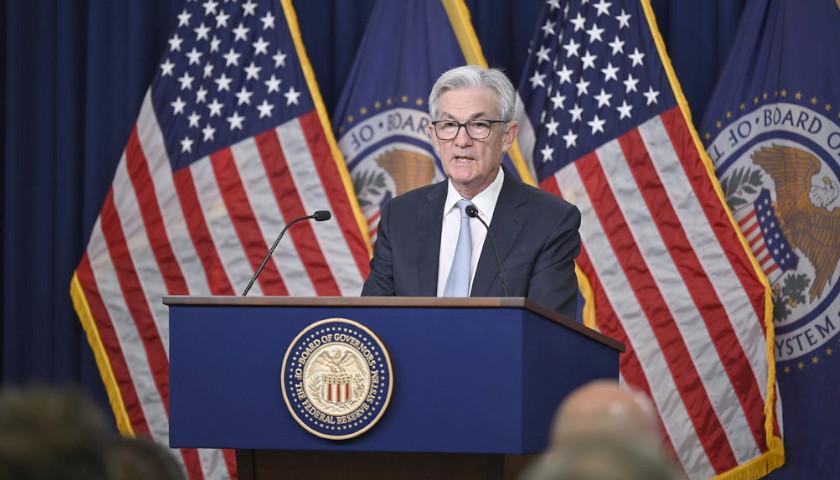by Jaryn Crouson
The Federal Reserve announced on Wednesday that it will not yet cut its benchmark federal funds rate in what is predicted to be the last in a streak of pauses as inflation and debt continues to cripple Americans.
The Fed’s decision not to change interest rates keeps the target in a range of 5.25% to 5.50% and marks the eighth meeting in a row where the Fed chose not to adjust the rate, according to an announcement from the Fed following a meeting by the Federal Open Market Committee (FOMC). The July decision marks the last pause before the Fed is widely expected to cut rates from their 23-year high at the FOMC’s September meeting as the economy eases and inflation is expected to trend slowly toward the Fed’s target.
“The Committee does not expect it will be appropriate to reduce the target range until it has gained greater confidence that inflation is moving sustainably toward 2 percent,” the announcement reads. “In addition, the Committee will continue reducing its holdings of Treasury securities and agency debt and agency mortgage‑backed securities. The Committee is strongly committed to returning inflation to its 2 percent objective.”
 A majority of investors believe as of Wednesday that the Fed will cut its federal funds range by 0.25% in September and again in November, according to CME Group’s FedWatch Tool. The Fed’s projection for the rest of the year was last updated in June, with a majority of board governors estimating that the rate will end the year at around 5.1%, less optimistic than earlier projections that anticipated three rate cuts by the end of 2024.
A majority of investors believe as of Wednesday that the Fed will cut its federal funds range by 0.25% in September and again in November, according to CME Group’s FedWatch Tool. The Fed’s projection for the rest of the year was last updated in June, with a majority of board governors estimating that the rate will end the year at around 5.1%, less optimistic than earlier projections that anticipated three rate cuts by the end of 2024.
Inflation cooled slightly to 3.0% year-over-year in June compared to 3.3% in May, still stubbornly higher than the Fed’s 2% target. The Consumer Price Index (CPI) has remained above 3% since June 2022, when it peaked at 9% despite resting at 1.4% before President Joe Biden took office in 2021.
High interest rates raise the cost of credit for businesses and tighten operating conditions, weighing down gross domestic product (GDP). First quarter growth in 2024 was revised down to 1.4% from an initial estimate of 1.6% but grew 2.8% in the second quarter, though some economists argue this growth is due largely to increased government spending.
Credit card delinquency rates reached the highest level since 2012 in the first quarter of 2024, with 2.59% of credit card balances more than 60 days overdue and total revolving balances hitting a record $628.6 billion, representing 71.3% of total outstanding balances. The federal fund rate has kept interest rates hiked, averaging above 20%.
Total household debt reached $17.69 trillion in the first quarter of 2024, an increase of $184 billion, according to the New York Fed.
– – –
Jaryn Crouson is a reporter at Daily Caller News Foundation.





